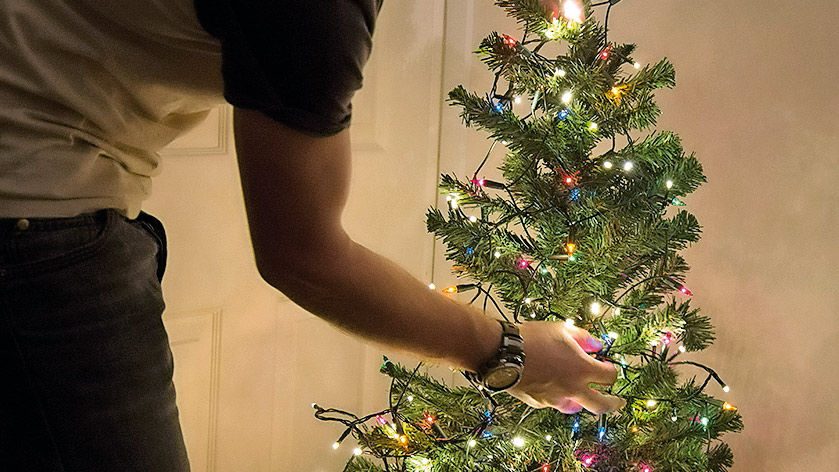Could fairy lights be slowing down your Wi-Fi?
Extra sparkle means sluggish downloads

You might want to think twice about festooning your Christmas tree with lights this year, particularly if it's positioned close to your router: UK communications watchdog Ofcom has warned the lights can slow down your Wi-Fi speeds.
It looks like we should add Christmas lights to the list of other electronic devices that can interfere with wireless radio waves, including baby monitors and microwaves, so choose your decorations carefully if you want to avoid any Christmas Day buffering on Netflix.
In fact, issues with electromagnetic interference from certain types of cheaper light bulb are nothing new, but Ofcom is trying to raise awareness of its new Wi-Fi Checker app - and highlighting potential problems with fairy lights is a good a way as any this time of year.
The need for speed
According to Ofcom, six million homes and offices across the UK could improve their wireless broadband by optimising their indoor Wi-Fi setup, and that's something the new app is designed to help with. It includes suggestions for how home broadband configurations could be improved.
The launch of the app is also tying in with Ofcom's Connected Nations 2015 report. It says more than a quarter of UK homes now have 'superfast' broadband (30Mbit/s or more), while broadband availability in rural areas continues to improve.
As for your Christmas decorations, just remember Wi-Fi signals aren't as robust as you might think. Repositioning your router and distancing it from potential sources of interference - such as fairy lights - can quickly improve your download and upload speeds.
Sign up for breaking news, reviews, opinion, top tech deals, and more.

Dave is a freelance tech journalist who has been writing about gadgets, apps and the web for more than two decades. Based out of Stockport, England, on TechRadar you'll find him covering news, features and reviews, particularly for phones, tablets and wearables. Working to ensure our breaking news coverage is the best in the business over weekends, David also has bylines at Gizmodo, T3, PopSci and a few other places besides, as well as being many years editing the likes of PC Explorer and The Hardware Handbook.